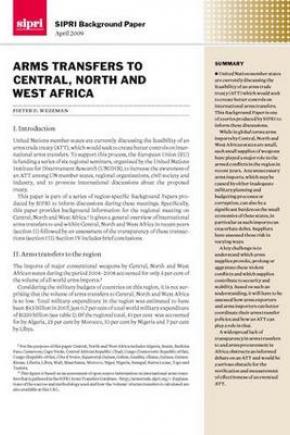Arms Transfers to Central, North and West Africa
While in global terms arms imports by Central, North and West African states are small, such small supplies of weapons have played a major role in the armed conflicts in the region in recent years. Any unnecessary arms imports, which may be caused by either inadequate military planning and budgeting processes or corruption, can also be a significant burden on the small economies of these states, in particular as such imports can exacerbate debts. Suppliers have assessed those risk in varying ways.
A key challenge is to understand which arms supplies provoke, prolong or aggravate these violent conflicts and which supplies contribute to security and stability. Based on such an understanding, it will have to be assessed how arms exporters and arms importers can better coordinate their arms transfer policies and how an ATT can play a role in that.
A widespread lack of transparency in arms transfers to and arms procurement in Africa obstructs an informed debate on an ATT and would be a serious obstacle for the verification and measurement of effectiveness of an eventual ATT.
I. Introduction
II. Arms transfers to the region
III. Transparency in arms transfers
IV. Conclusions

